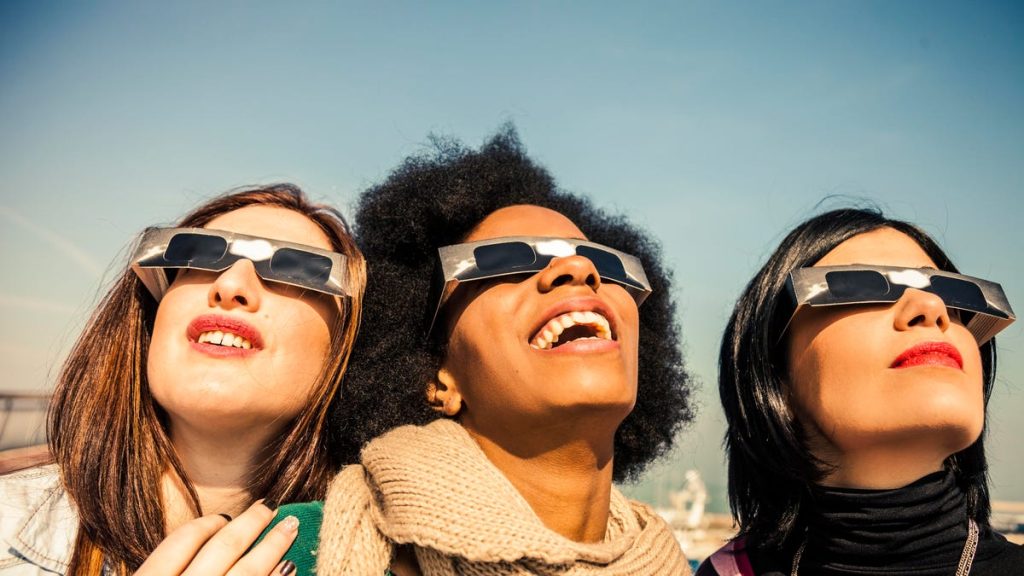A total solar eclipse is set to occur on Monday, providing parts of the United States with a full view of “totality.” States within the viewing area include Texas, Oklahoma, Arkansas, Missouri, Illinois, Kentucky, Indiana, Ohio, Pennsylvania, New York, Vermont, New Hampshire, and Maine, as well as smaller parts of Michigan and Tennessee. It is important to ensure eye safety by using proper protection when viewing the eclipse, as unsafe viewing can lead to solar retinopathy, causing damage to the retina similar to sunburn on the eye. Free eclipse glasses can be obtained from locations such as Warby Parker or local libraries participating in the STAR Library Network.
When ordering eclipse glasses last minute, it is essential to ensure that the glasses are compliant with safety standards and have been vetted by organizations like the American Astronomical Society. Counterfeit glasses may claim to meet safety standards, so it is crucial to stick to approved suppliers. Specific manufacturers, such as Soluna, Helioclipse, and eclipseglasses.com, have been identified by the AAS as safe options for purchasing eclipse glasses. Overnight shipping options are available to ensure that glasses arrive before the eclipse day.
The risk of solar retinopathy, or damage to the retina from exposure to the sun, presents a significant threat during a solar eclipse. Even a brief exposure to the sun without proper eye protection can lead to vision problems such as blurry vision, blind spots, and distorted color vision. There is no known treatment for solar retinopathy, highlighting the importance of prevention through the use of approved eclipse glasses. Recovery from solar retinopathy can vary from a few months to a year, with some individuals experiencing permanent vision loss.
Testing eclipse glasses before the event is recommended to ensure that they provide adequate protection from harmful solar radiation. Glasses that allow any light other than sunlight through should not be used, as they may not offer sufficient protection. Children should be closely monitored while wearing eclipse glasses, as they may be more likely to remove them while viewing the eclipse. Individuals viewing a solar eclipse outside the path of totality should always wear protective eyewear to prevent the risk of eye damage.
While there is a brief period during totality where it is safe to view the eclipse without glasses, it is crucial to keep them on during the partial phases. Solar retinopathy poses a risk to anyone exposing their eyes to the sun’s harmful rays, regardless of their susceptibility to sunburn. The delicate retinal tissue is susceptible to damage from even a few seconds of direct sunlight exposure, highlighting the importance of proper eye protection during a solar eclipse. Recovery from solar retinopathy can vary, with some individuals experiencing long-term effects on their vision.


